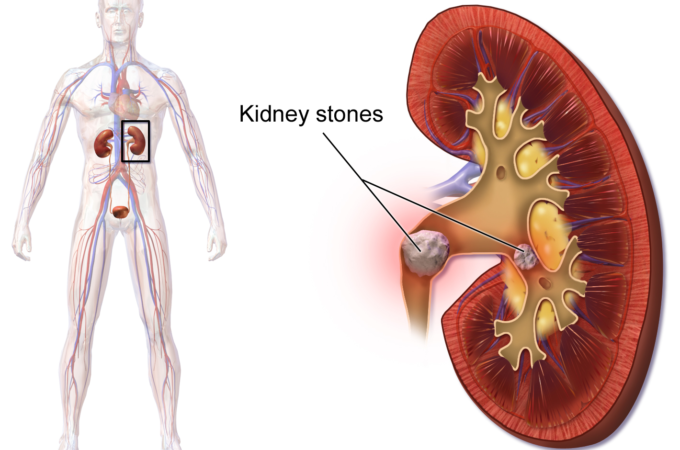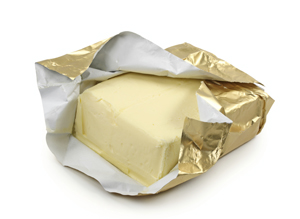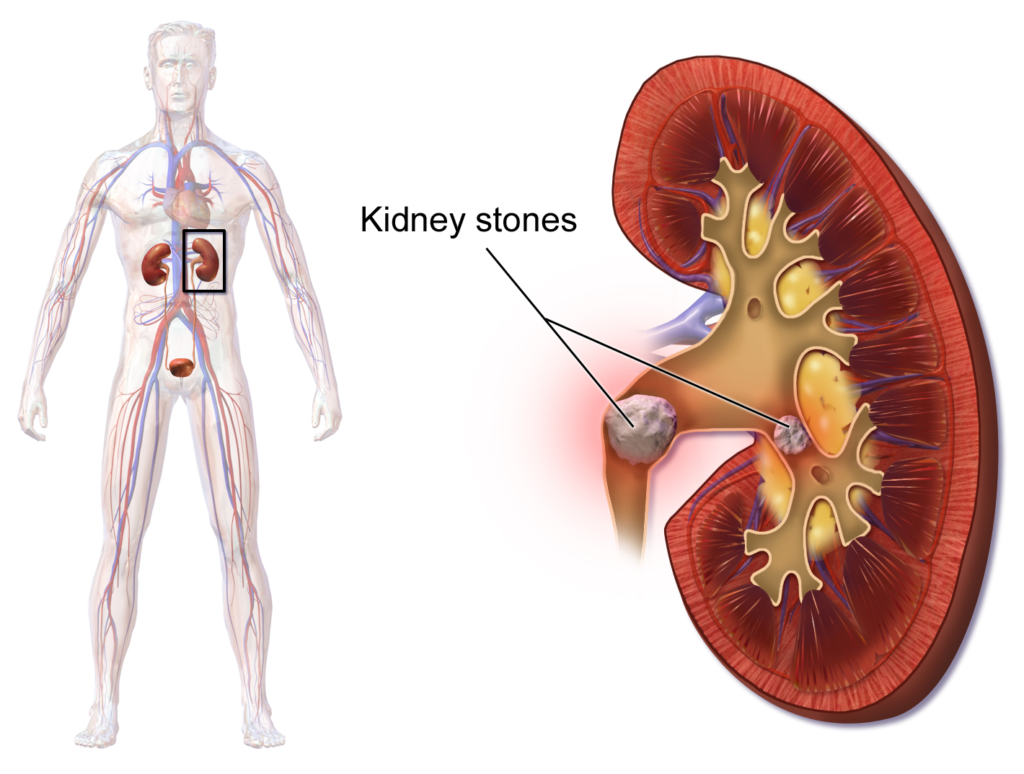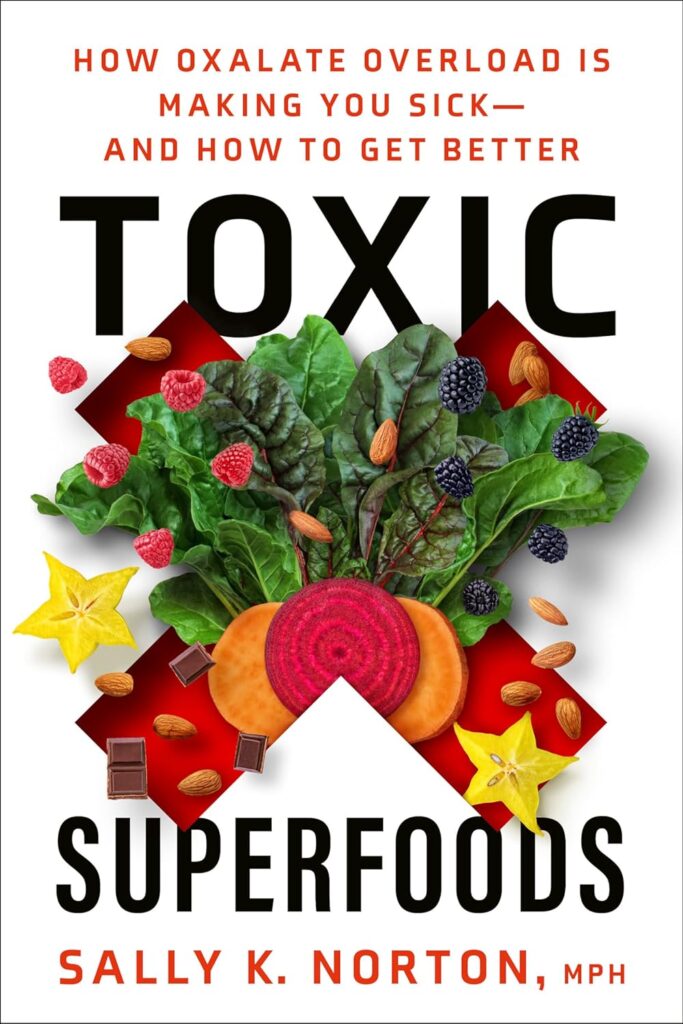
Oxalic Acid and Kidney Stones and Mineral Absorption
Are you wondering if eating spinach causes kidney stones?
Yes the oxalic acid in raw spinach is a factor to consider. Raw spinach is very high in oxalates. When people eat a big spinach salad regularly or add handfuls of spinach to their daily green smoothie, this is a high load of oxalates,
It would be best to eat most of your spinach sautéed in butter or lightly steamed. It is ok to eat raw spinach occasionally but maybe not a huge amount on a daily basis.
Having butter on veggies allows for better mineral absorption.
Haas, MD says, “Foods that are high in oxalic acid – such as spinach, rhubarb, chard, and chocolate-can interfere with calcium, magnesium (and other minerals like iron) absorption by forming insoluble salts in the gut. Phytic acid, or phytates, found in whole grain foods may reduce the absorption of calcium and other minerals as well.”
Avoid greens high in oxalates: spinach, Swiss Chard, beet greens.
Better options that are low in oxalates are Romaine, Boston lettuce, watercress, arugula, mache.
Mineral Absorption and Stomach Acid
If you are concerned about lower minerals, there are many factors that can reduce minerals like poor absorption. A big cause is low stomach acid and taking acid-lowering medication. According to Haas, calcium, iron and zinc are the minerals most commonly deficient in the diet.
Iron sources: vegetables have the poorly absorbed nonheme from of iron.
The best source of iron is the heme form from flesh foods, especially grass-fed beef and liver but also fish, other meat, poultry (especially dark meat).
Eat both forms to increase your iron absorption.
Increase mineral absorption
- Make sure stomach acids are high enough and stop taking Tums and acid-lowering drugs.
- It may be necessary to supplement with Betaine HCl.
- Eat animal flesh foods and cook in an iron skillet.
- Do not drink pop and watch the coffee and black tea consumption.
- Stop eating grains (phytates bind minerals).
KIDNEY STONES
If you are prone to kidney stones then you may want to follow a low-oxalate diet. Sally K. Norton is an expert on the subject. It is not as simple as cutting out all foods with oxalates, so get the book and understand all the nuances.
Hydration
Many people are dehydrated and this contributes to kidney stone formation. Fluid intake is key – w.a.t.e.r. – drink about 3 quarts of water each day, or half your body weight in ounces of water.
Add fresh lemon juice to your water. The citric acid in fresh lemon juice has been shown to inhibit stone formation and break up small stones that are beginning to form. The recommendation from UW Hospital Metabolic Stone Clinic in Madison, WI is to add about 1/2 cup fresh lemon juice per day – this can be divided among several glasses of water. Always rinse your mouth after drinking lemon water, it can be hard on your teeth over time!
Sip on organic herbal teas like dandelion root tea which is a diuretic and promotes the elimination of waste products.
Watch Out: Protein, Fructose, Sugar, Processed Food
- A high intake of fructose and high fructose corn syrup will increase the amount of uric acid, a waste product that is formed and excreted by the kidneys.
- A diet high in sugar, grains, soda and processed foods and processed salt will promote the formation of stones.
Supplements
- When supplementing with Vitamin D, be sure to add Vitamin K2 to move the calcium from your your arteries into your bones. (Try Metagenics D3 5000 + K).
- Harvard researchers found that increasing magnesium is very important in avoiding kidney stones. Add about 500mg of magnesium glycinate or magnesium citrate at bedtime. (Try Mg Plus Guard).
- Also add a methylated B Complex.
K & B Tincture
K & B Tincture is formulated to nutritionally support normal kidney and bladder health.
Take 3 droppers of K & B in 4 oz water, or as directed on product label.
Ingredients: Juniper, parsley, Uva Ursi, Dandelion root, Royal Jelly with essential oils (Geranium, Fennel seed, Clove, Roman Chamomile, Sage, Juniper).
- Juniper enhances the body’s efforts to maintain proper fluid balance.
- Parsley supports kidney and bladder function and aids overall urinary health.
- Uva ursi supports both urinary and digestive system health.
- The therapeutic grade essential oils added to the ingredients fortify the effectiveness of its overall use for kidney and bladder support.
Essential Oils for Kidney Support
- Grapefruit, lemon, geranium, juniper
- Diffuse your choice of essential oils as desired.
- Optional, put 2-3 drops of essential oil in your hands and rub them together, cup your hands over your nose, and inhale throughout the day.
- You may apply essential oils topically. Mix 6 drops with a little coconut oil or other fatty carrier oil and rub on the back over the kidney area.
 The kidneys remove waste products from the blood and help control blood pressure.
The kidneys remove waste products from the blood and help control blood pressure.
They filter over 200 quarts of blood each day and remove over 2 quarts of waste products and water that flow into the bladder as urine.
Remember that adequate pure water is vitally important, while drinking soda is one of the worst things you can do for fluid intake.
Recommended
-
Dandelion for Liver Support and Health BenefitsJuly 20th, 2024
-
Modified Citrus PectinJuly 11th, 2024
-
Bentonite Clay Mask for Face and ArmpitsJuly 8th, 2024
-
Two Supplements for Erectile DysfunctionJune 30th, 2024













